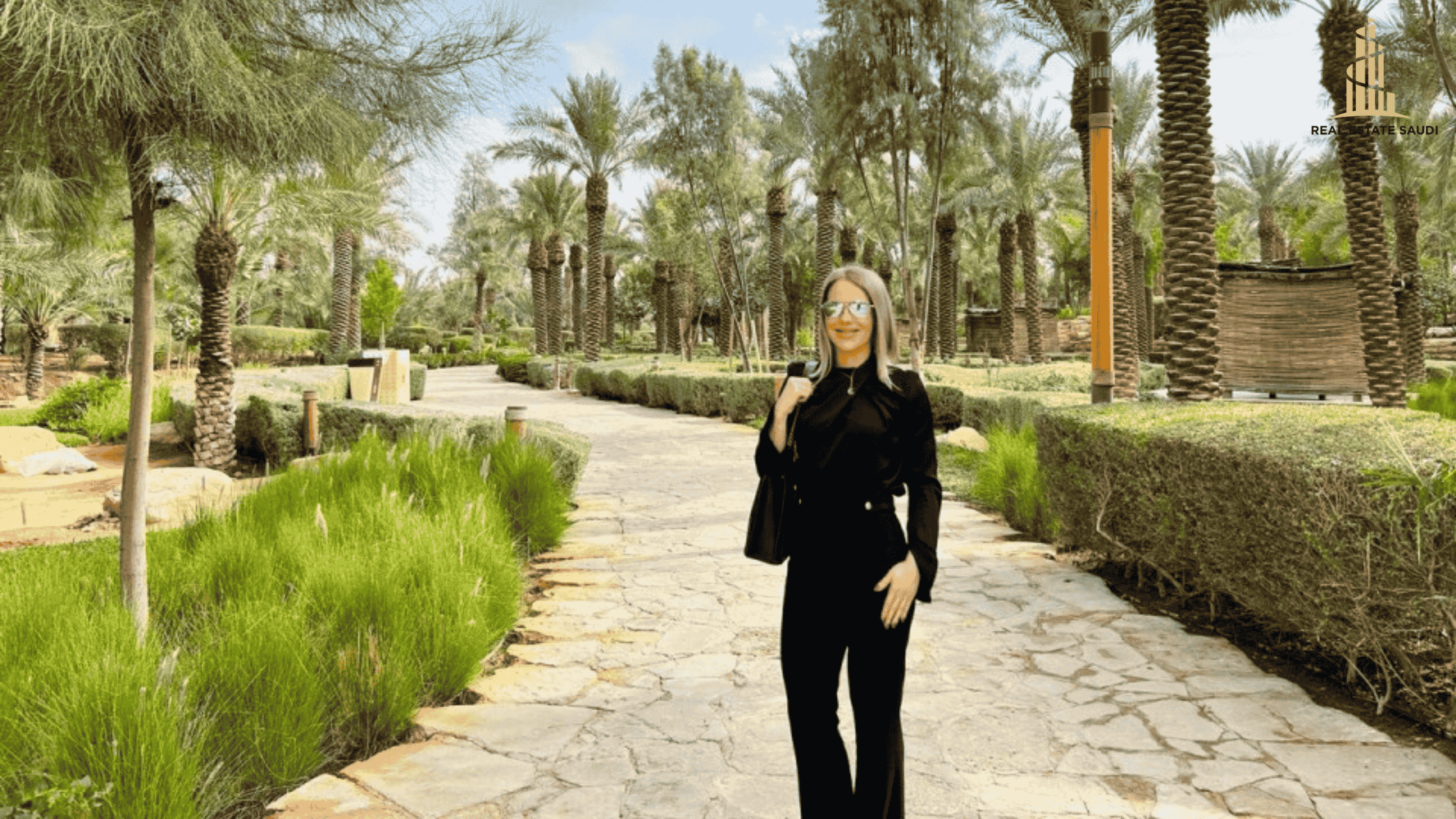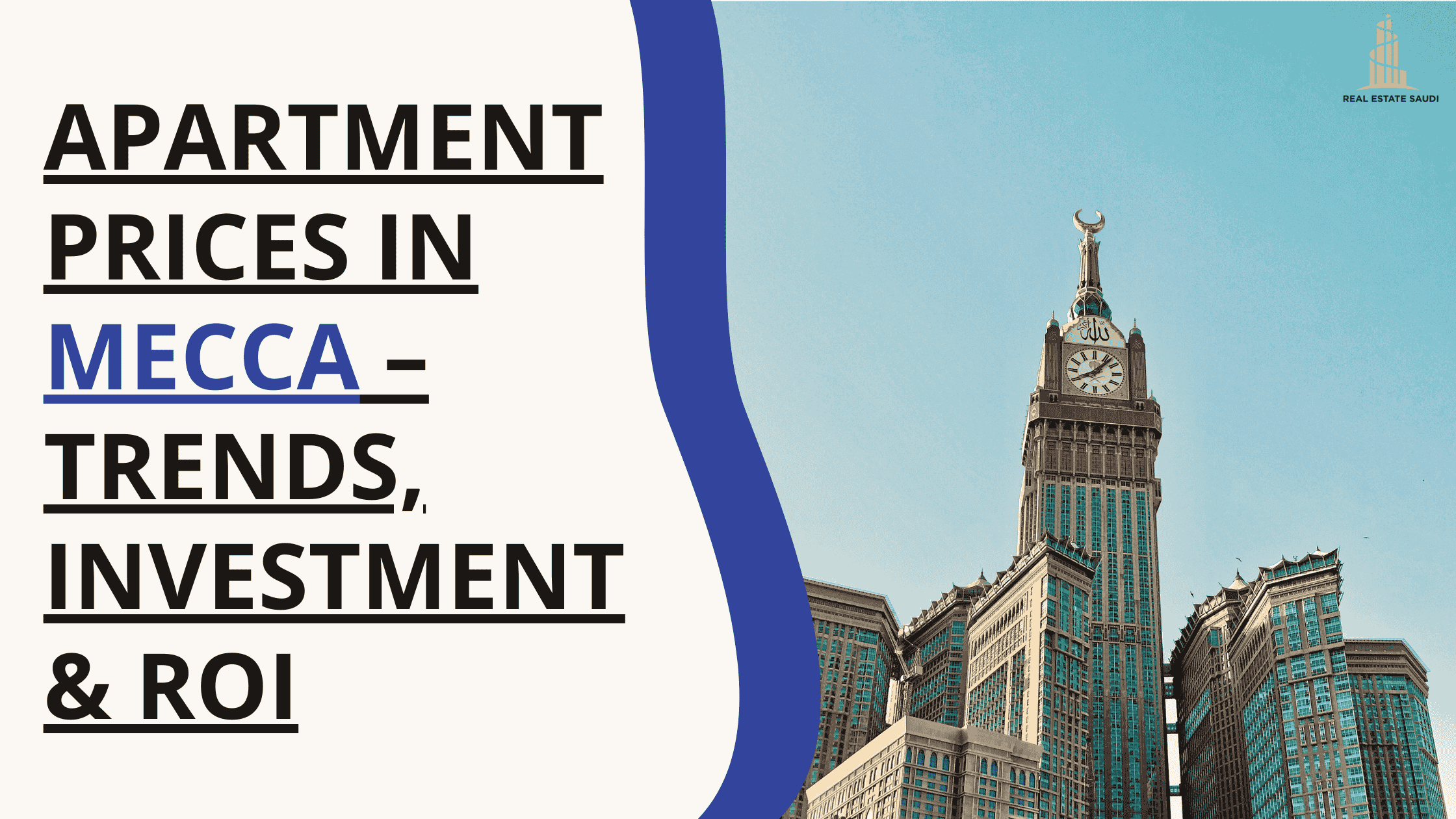The Concept of Foreign Investments in Saudi Arabia
Foreign investment in Saudi Arabia refers to funds injected by non-Saudi investors into projects within the Kingdom, either directly through establishing companies or purchasing assets, or indirectly via partnerships or acquisitions. Saudi Arabia aims, through this type of investment, to enhance the national economy, improve the efficiency of various sectors, transfer knowledge and modern technologies, and provide new job opportunities for citizens.
This aligns with the goals of Vision 2030, which seeks to diversify the economy and reduce dependence on oil by opening the door to foreign investors in many sectors, most notably real estate, which is among the most attractive sectors due to increasing demand and urban expansion in Saudi cities.
Read: How to Invest in Saudi Real Estate with Minimal Capital?
Types of Foreign Investment in the Real Estate Sector
Saudi Arabia has witnessed significant diversity in the forms of foreign investment in the real estate sector, helping to meet various market needs and support urban development efforts. These investments can be categorized into three main types, each with its features, objectives, and impacts:
Residential Investments
This includes the development of residential compounds, villas, apartments, and ready-made housing units for sale or rent. These projects often focus on meeting the growing demand for housing in major cities such as Riyadh, Jeddah, and Dammam, while offering modern designs and high construction quality to attract the middle and upper classes.
Commercial Investments
This type includes building office spaces, business centers, and shopping malls. It plays a vital role in improving the business environment in the Kingdom, offering advanced spaces for local and international companies, and contributing to job creation and support for the non-oil economy.
Tourism and Hospitality Investments
These include developing tourist resorts, luxury hotels, and integrated leisure facilities. This type of investment responds to the rapid growth of the tourism sector, especially following government facilitation that opened the door to international tourists, pilgrims, and Umrah visitors, making these projects a new engine of growth in Saudi real estate.
Collectively, these investment types help reshape the infrastructure of Saudi cities, improve the quality of life, and increase the range of housing and commercial options available for citizens and residents alike.
Read: How to Legally Protect Your Real Estate Investment in Saudi Arabia
The Impact of Foreign Investments on the Saudi Real Estate Market
Positive Aspects
Foreign investments have significantly contributed to supporting the real estate sector in Saudi Arabia by injecting new capital and introducing international models in design and construction. One of the most prominent benefits is the expansion of large-scale real estate projects characterized by modern planning and integrated services. These investments have also stimulated competition among local and international developers, helping to improve construction quality and raise safety and technology standards.
Furthermore, foreign investments have created new job opportunities, both during construction and in operation and maintenance phases. They have also helped support the local economy by increasing the volume of real estate transactions and stimulating supporting sectors such as contracting, interior design, and engineering services. Additionally, the entry of foreign capital boosts other investors’ confidence in the Saudi real estate market, enhancing its long-term appeal.
Potential Drawbacks
Despite the many benefits brought by foreign investment to the Saudi real estate market, some potential drawbacks should be considered. One of the main concerns is the possible increase in real estate prices, especially in areas with a high concentration of foreign investments, which may affect citizens’ purchasing power. Also, some foreign-led projects may focus only on major cities, neglecting other regions and causing an imbalance in urban development. Another issue is the increased reliance on foreign companies for project execution, which could hinder the empowerment of national firms.
Additionally, certain imported real estate models may not align well with the culture and needs of Saudi society, necessitating clear regulatory frameworks to maintain a balance between economic openness and preserving local identity.
Read: Saudi Arabia Imposes 5% Tax on All Real Estate Transaction
Examples of Real Estate Projects with Foreign Investments
In recent years, Saudi Arabia has witnessed several major real estate projects developed through international partnerships and foreign investments, clearly illustrating their impact on the sector’s growth. At the forefront is the NEOM project, one of the world’s largest and most ambitious developments, which attracts massive international investments across various sectors, including residential, commercial, and tourism real estate. Another key example is the Qiddiya project, a collaborative effort between the Saudi government and global developers, featuring entertainment, cultural, and residential zones. The Red Sea Project also stands out as it aims to establish luxurious tourist destinations along the Kingdom’s western coast, with strong participation from foreign investors in constructing hotels and resorts while adhering to environmental sustainability standards.
In Riyadh, numerous real estate projects have been launched in cooperation with international developers, including smart residential neighborhoods and modern commercial centers. These examples confirm how foreign capital plays a central role in driving real estate development in the Kingdom.
Regulatory and Legislative Framework
Saudi Arabia has paid great attention to establishing a regulatory and legislative environment that facilitates foreign investment in real estate while safeguarding the rights of all parties involved. One key law is the regulation of foreign ownership of property, which has been amended to allow non-Saudis to own property in certain areas under specific conditions, especially in economic zones and major projects.
The Ministry of Investment has also launched several initiatives to ease market entry for investors, speed up licensing, and provide market data and studies. Additionally, the Real Estate General Authority has been established as a regulatory body to monitor the sector and ensure transparency. These efforts are part of the Kingdom’s broader vision to create a safe, attractive investment environment that supports sustainable real estate development and maintains a balance between local and foreign investor interests.
Start Your Real Estate Investment Journey in Saudi Arabia with Real Estate Saudi
If you’re considering entering the Saudi real estate market, Real Estate Saudi is your ideal partner to help you achieve your investment goals with professionalism and confidence. At Real Estate Saudi, we have extensive experience in the Saudi real estate sector and offer you comprehensive consultancy services to help you make smart decisions based on accurate market analysis. Whether you’re looking for opportunities in residential projects or you want to invest in commercial or tourism real estate, our team of experts is ready to assist you every step of the way—from selecting the right property to handling legal procedures and even managing the property post-purchase.
We also stay up to date with all legislative and regulatory developments affecting real estate investment in the Kingdom to ensure your investment is both safe and profitable. Don’t hesitate to contact us today and start your real estate journey with the experts in Saudi real estate.
Certain FAQs
Can foreigners legally invest in real estate in Saudi Arabia?
Yes, foreigners can invest in Saudi real estate under specific regulations. With updated laws, non-Saudis are allowed to own property in designated zones and economic development projects, especially under Vision 2030.
What are the benefits of foreign investment in Saudi Arabia’s real estate sector?
Foreign investment helps finance large-scale projects, raises construction quality, introduces global design standards, and creates local jobs. It also increases investor confidence and boosts the Saudi non-oil economy.
Which cities in Saudi Arabia attract the most foreign real estate investment?
Major cities like Riyadh, Jeddah, and Dammam are top destinations for foreign investors due to strong infrastructure, government-backed projects, and rising demand for residential, commercial, and tourism properties.
Are there risks associated with foreign investments in Saudi real estate?
Yes, potential risks include rising property prices, overconcentration in major cities, and cultural misalignment of imported real estate designs. Regulatory oversight helps balance these risks for sustainable development.
What major projects in Saudi Arabia involve foreign real estate investors?
Iconic projects like NEOM, Qiddiya, the Red Sea Project, and smart communities in Riyadh showcase how foreign investment is transforming Saudi Arabia’s real estate sector.





